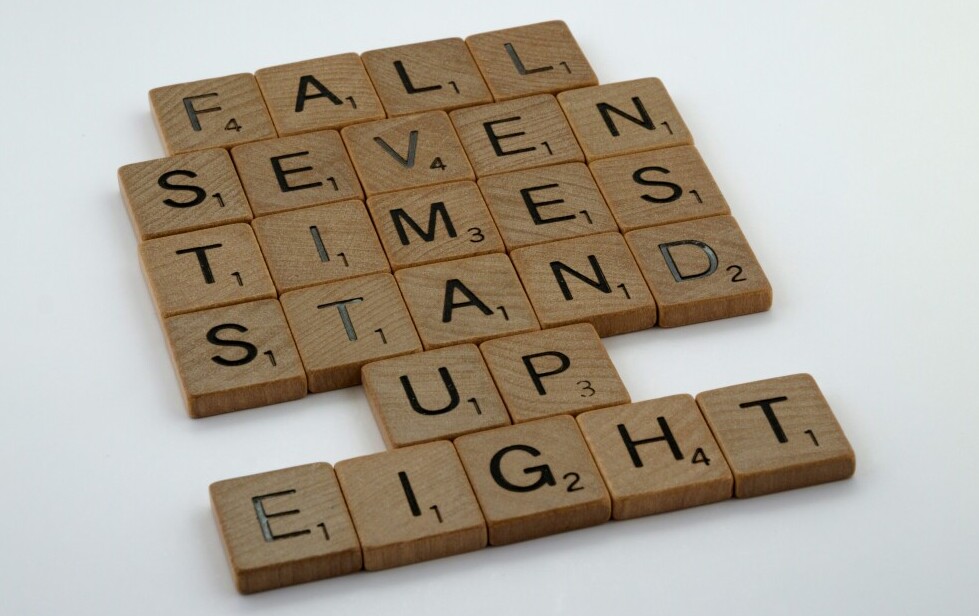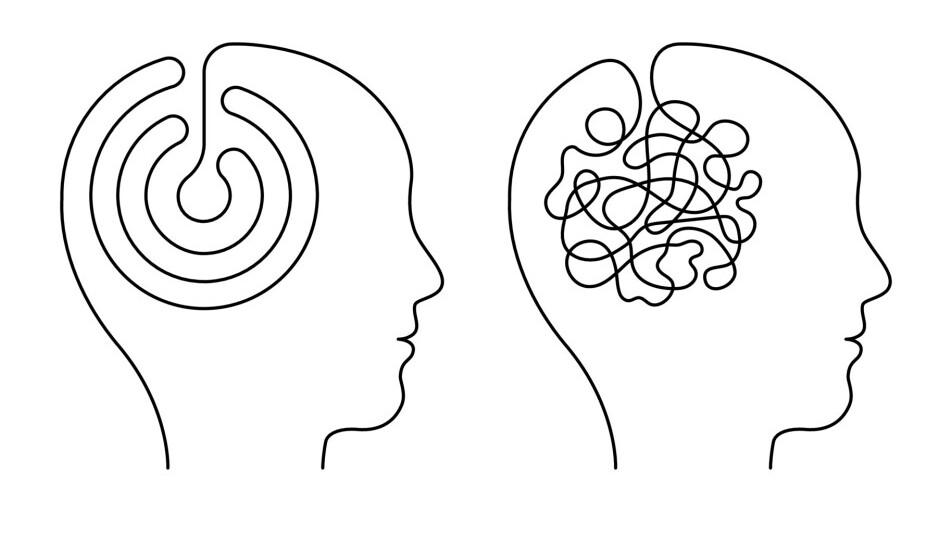
Life throws punches at all of us. Stress, setbacks, and sudden curveballs are part of the deal. But the people who bounce back the fastest aren’t made of steel, they’re resilient. They take the hit, adjust, and keep moving. They grow through what they go through.
Sure, some people might be wired with a bit more natural grit. But the truth is that resilience isn’t something you’re born with or without. It’s a skill that you can build. Just like a muscle, you strengthen it with small reps over time. One habit, one choice, one bounce-back at a time.
In my years as a counselor in mental health, I’ve spoken to hundreds of people going through real chaos. Grief, breakups, burnout, rock‑bottom moments. And a pattern always stands out: the people who make it through don’t just “stay positive.” They believe they can handle it. And if they can’t handle it right now, they believe they can learn and grow to be able to handle it.
This – simply put – is self‑efficacy, and it’s absolutely key. It’s the voice in your head that says, “I can figure this out.” That mindset doesn’t make things easier, but it makes you tougher.
Resilience and self‑efficacy go hand‑in‑hand. They’re what keep you from folding when life knocks you down. They’re what help you say, “Okay, what now?” instead of, “I give up.”
This article is a quick‑start guide. I’ll break down the core habits and mindset shifts I’ve seen work again and again. Most of it is simple stuff, but it’s powerful – small improvements that can make a big difference.
And this is just the beginning. Over the next few months, I’ll be diving deeper into the specific tools, habits, and strategies that help you build real mental strength. My goal is to give you the tools to build a strong, resilient mind that doesn’t crack under pressure. One that can handle whatever life throws your way.
“Do not pray for an easy life, pray for the strength to endure a difficult one.”
– Bruce Lee
Resilience Is a Skill – Not a Superpower

Let’s kill the myth right now: resilience isn’t about being bulletproof. It’s not about never feeling stressed, scared, or knocked flat. The truth is that everyone gets hit by life. Everyone struggles. The difference lies in how you respond.
Resilience means getting back up when life drags you down. It’s being able to bend without breaking. It’s staying grounded when everything around you feels like chaos. On some days, it might mean powering through challenges and staying focused under pressure. On other days, it might be about slowing down, regrouping, and pushing forward again. Either way, you not giving up. You’re still in the fight, you’re still moving forward, even if the tempo might change along the way.
The good news is that resilience isn’t some magic trait you’re either born with or not. It’s a skill. And like any skill, you can train it, build it, and get better at it. But it works both ways. If you don’t put in the work, it fades. Mental strength doesn’t just show up. You’ve got to earn it.
So if there’s one message you take from this article, let it be this: you have way more control over your mental resilience – and your mental health – than you probably realize. You can train your mind to handle hard things. You can get stronger. And if you stay with me, it starts now.
“You don’t have to control your thoughts. You just have to stop letting them control you.”
– Dan Millman
Strengthening the Mind
Your thoughts run the show! That’s not hype, that’s just a basic truth.
There’s a reason why “mindset” gets talked about so much. It’s not just Instagram fluff or a trendy self-help buzzword thrown around ad nauseam. It matters because your mind shapes your thoughts, your thoughts drive your actions, and your actions create your life. It all starts upstairs. And if your thinking is all over the place, your results will be too.
The good news is that you’re not stuck with whatever default mindset you’ve picked up over the years. You can train your brain to think differently. Clearer, calmer, stronger. But it takes awareness and effort. Most people don’t even realize how negative their thinking is because it’s become automatic. “I’m not good enough”, “What if I fail?”, “Why bother?” That kind of mental noise runs deep if you don’t check it.
The truth is, most of us could seriously level up just by working on our thought patterns. And yes, it’s absolutely something you can learn and practice.
So let’s get into it. Here are a few simple and powerful ways to start strengthening your mind right now.
“What lies behind us and what lies before us are tiny matters compared to what lies within us.”
— Ralph Waldo Emerson
1. Challenge Negative Self‑Talk
We’ve all got that voice in our head – the one that whispers, “You’re gonna screw this up” , “Why even try?” That’s your inner critic, and it talks a lot of trash. But please remember that just because your brain says something doesn’t make it true.
But the thing is that your brain loves patterns, even the crappy ones. One bad thought leads to another, and before you know it, you’re stuck in a mental downward spiral. So you have to try to catch those thoughts in real time. When you hear yourself thinking “I can’t do this” or “I always screw things up,” stop for a moment and call it out. Literally say (out loud if you need to), “That’s not helpful.” The goal isn’t fake positivity, it’s breaking the pattern before it runs your day.
Don’t be mad about this. Negative self-talk is just your brain trying to protect you. It’s survival mode. The moment you try something new or uncomfortable, your subconscious throws up red flags. “Danger! Stay small. Stay safe.” But safe doesn’t build strength. We all know that growth lives outside the comfort zone.
So when that voice pipes up, catch it and question it.
- Thought: “I’ll never get this right.”
- Response: “Really? Never? Or am I just frustrated right now?”
- Thought: “I’m not good enough.”
- Response: “Says who? What evidence do I actually have?”
You’re not ignoring the thought; you’re simply flipping the script. And once you poke a hole in the lie, throw in some truth:
- “I’ve handled worse.”
- “I’m learning. This is progress.”
- “This might be hard, but I’ve handled hard things before!”
If it’s tough to be kind to yourself, imagine talking to yourself like you would to a good friend. That shift in inner dialogue is powerful. Control your thoughts, control your outcomes.
“You may have to fight a battle more than once to win it.”
– Margaret Thatcher
2. Cultivate a Growth Mindset
A growth mindset means believing you can get better at anything with time and effort. You’re not stuck with the skills you were born with. You’re not “bad at math” or “not the creative type”. You’re just not there yet. Big difference.
When you mess up, don’t fall back into the negative self-talk and say, “I suck.” Say, “I’m learning.” That mindset flips failure into progress. If you miss your goal, then you now know what to fix. If you got rejected, that’s feedback, not the end. If you’re struggling in the gym, on stage, or at work, it simply means you’re pushing yourself. Keep going and fail forward. It’s the only way to learn.
The people who grow the most aren’t the ones who get it perfect every time. They’re the ones who fall, get up, and ask, “What’s next?” A growth mindset isn’t just feel-good talk. It’s how you build real confidence and long-term success.

3. Enhance Emotional Intelligence
Emotional intelligence helps you stay calm under stress and connect better with others. It means being able to recognize what you’re feeling and not let it run the show. Instead of freaking out or shutting down, you learn to pause and say, “Okay, I’m feeling anxious,” or “I’m pissed off right now.” Just accepting and naming it helps take the edge off and allows you to start moving in a more constructive direction.
So many people either ignore their emotions or let them bottle up until the point of nearly exploding. Obviously, neither approach works.

Emotional intelligence is about owning what you feel without letting it wreck your day or your relationships. For example, if someone cuts you off in traffic, you don’t have to spiral into rage. If you’re nervous before a big meeting, you can admit it, breathe, and still show up strong.
Here’s a quick breakdown of a simple strategy anybody can use. And this is one of the topics I’ll be taking a deeper dive into in future posts, so if this is something you’re interested in, check back on the site.
Building emotional intelligence starts with getting brutally honest with yourself.
-> Step one: Name what you feel – don’t just shove it down or explode later. Say it: “This is stress,” “This is frustration.” That awareness gives you power.
-> Step two: Pause before reacting. That split-second breath can stop you from making a mess you’ll regret.
-> Step three: Lead with empathy – not to be soft, but to be smart. People connect when they feel seen, not fixed. Emotional intelligence isn’t fluff. It’s mental strength in action.
The more you practice this, the calmer, clearer, and more in control you become. You don’t have to bottle things up, you can deal with them. That’s taking a big step toward mental strength. Not pretending you’re fine, but knowing how to stay steady even when you’re not.
“In the middle of every difficulty lies opportunity.”
– Albert Einstein
Fortifying the Brain
Mental toughness starts in the mind, but it doesn’t live in your head alone. Your brain is part of your body, and if you’re running on fumes, don’t be surprised when your mindset tanks.

Mind–Brain Synergy
Mental resilience isn’t just about mindset. Your brain and body are in constant conversation, and when one’s off, the other feels it.
When your brain’s working on clean fuel and solid sleep, your thoughts are quicker, clearer, sharper. When your mind’s calm and focused, your body relaxes, steadies, and performs better. It’s a loop: one feeds the other. And when both are in sync, you’re grounded, you think better, act smarter, and you can handle chaos without falling apart.
So if you’re only working on your “mindset” but ignoring your physical health, you’re missing half the game. Take care of the whole system. That’s where real resilience lives.
1. Sleep Like Your Life Depends On It (Because It Does)

Sleep isn’t some luxury for people who have time. It’s survival fuel. Skip it, and your brain turns into mush: your mood crashes, focus slips, and every little thing starts to feel overwhelming.
Want to be sharper, calmer, and less reactive? Get your 7–9 hours. No excuses. Create a wind-down routine. Ditch the phone before bed. Train your brain to rest so it can show up for you when it counts.
2. Eat Like You Give a Damn About Your Brain
Your brain doesn’t run well on junk. If you’re loading up on sugar, greasy takeout, and energy drinks, you’re basically sabotaging your focus and emotional stability.
Start feeding it right: whole foods, leafy greens, clean proteins, and healthy fats (hello omega-3s). Drink more water. Cut back on the crap. It’s simple, and we all know it.
Clean fuel = clean focus. Period.
3. Move Your Body – Even When You Don’t Feel Like It
You don’t need to train like an athlete, but you do need to move. Exercise clears the mental cobwebs. It reduces stress hormones, boosts dopamine and serotonin, and helps you feel grounded.
No gym? No problem. Go for a walk. Stretch. Dance in your living room. Just move.
Motion shifts emotion. Every time you move, you’re telling your brain, “I’m still in control.”

The bottom line is that if you want a resilient mind, you’ve got to give your brain the support it needs. You can’t fight life’s battles while treating your body like trash.
Take care of your machine because resilience needs fuel. Your mindset is only as strong as the system it runs on. You can’t think straight, stay focused, or bounce back if it’s falling apart.
“Your mind will quit 100 times before your body ever does. Train it.”
– Unknown
Build Micro‑Habits That Matter
You don’t need to flip your entire life upside down to get mentally stronger. Forget the massive overhauls and all-or-nothing mentalities. They usually crash and burn anyway. Real, lasting change comes from small, consistent habits that stack up over time. Tiny shifts with big impact.
Here’s are a couple of simple ways to start:
- Label Your Emotions
When stress hits, don’t stuff it down. Label it – name the emotion. “This is anxiety.” “This is frustration.” I know it sounds basic, but naming it gives you awareness, which gives you control. This stops you being run by it, and that’s the first move in taking your power back. - Breathe Like You Mean It.
When life spins out, your nervous system flips into fight-or-flight. Cut through the chaos with this breathing technique called Box-Breathing (used by yogis, Navy Seals and everyone in between): Inhale for a count of 4. Hold for for a count of 4. Exhale for for a count of 4. Do it a few times. You’ll be surprised how fast your system starts to settle. It’s like a built-in reset button that switches your nervous system from the sympathetic (fight-or-flight) state to the parasympathetic (rest and relaxation) state. Use it, it’s absolute gold! - Ask Yourself: Am I Acting Like the Person I Want to Be?
Not in a cheesy way. Just check in. “Is this how the future me would respond?” If not, adjust. Let your values – not your moods – call the shots.
These micro-habits seem small, but they are the very reps we mentioned earlier. Every rep trains your brain to respond, not just react. This is the basis of mental strength and resilience.
“Sometimes, the bravest thing you can do is keep going when you want to give up.”
– Brené Brown (paraphrased)
Consistency Over Intensity – Every Time
Most of us are wired to want the quick win. To go hard, crush it, post it. When we decide we want a change, we’re motivated and we work hard at our goal, expecting a result fairly quickly. But when it comes to building mental resilience, steady beats intense every time. (This goes for most other things in life as well, but that’s a story for another time.)
You don’t build muscle from one brutal gym session. The same goes for mental strength. You build it from showing up daily, even when you don’t feel like it. Even when it’s just for five minutes.
So don’t worry about doing a whole lot right away. Be the person who shows up again and again and builds the habits one small step at a time. That’s where your edge is.
Identity-Based Habits: Who Are You Becoming?

If you want your habits to actually stick, tie them to who you are. Not just what you want to do. (for a much deeper dive on how to effortlessly build habits that last, go HERE)
Don’t say: “I want to meditate.”
Say: “I’m someone who protects their mental space.”
That shift makes a world of difference. When your habits match your identity, they’re much more likely to become automatic. And when they’re automatic, they’re sustainable.
You can try asking yourself:
• “Who am I trying to become?”
• “What’s one small action that version of me would take?”
Then do it repeatedly. You’ll notice that you’re not faking it. You’re becoming it.
“Tough times never last, but tough people do.”
– Robert H. Schuller
Don’t Dismiss the Small Stuff
It’s tempting to dismiss the tiny wins. “Whatever, that was just five minutes.” ”That was just that one time.”
Wrong. That five minutes or that one time is a brick, and brick by brick is how you build a wall. And if you focus on laying each individual brick as well as you can, you’re building a wall that lasts.
Every time you:
- Take a breath instead of snapping
- Get up and move instead of doomscrolling
- Talk to yourself like someone worth backing…
You’re reinforcing strength. You’re laying down the foundation of a mind that doesn’t break at the first sign of pressure.
You don’t need more intensity. You need more intention. Start small. Stay consistent, and watch yourself become the kind of person who can handle most anything that life throws at you.
“Mental strength is not the ability to stay out of the darkness. It’s the ability to sit in the darkness and still find the light.”
– Unknown
Resilience is a Daily Practice

So let’s be clear on the overall message here: Mental resilience isn’t about being bulletproof. It’s not about having your sh*t together 24/7, or pretending nothing ever rattles you. That’s not strength. That’s denial. Mental resilience is about knowing you can get better at handling hard things.
Any growth is messy.
It’s about showing up when you’d rather hide, choosing courage over comfort. Choosing growth even when your fear is telling you to stay in your comfort zone, and taking action even when your brain is feeding you excuses.
You don’t need a 10-step plan.
You don’t need to “fix” everything overnight.
You just need to start.
- Take a deep breath.
- Pick one habit.
- Take one small step.
- Do it today.
Strong minds are not built in grand, sweeping gestures, but in tiny, relentless acts of self-respect. One day at a time, one brick at a time. Small moves, daily reps.
You’ve got this!
“Rock bottom became the solid foundation on which I rebuilt my life.”
– J.K. Rowling
And please remember that this stuff is hard! I’ll be the first to admit that I am in no way a master of these things. I am right in the middle of the messy process! 😉
But awareness is the first step!
I’d love to know if any of this makes sense to you. Resilience looks different for everyone, so drop a comment and let me know what part of this hit home for you. What’s one mindset shift or habit you’re working on right now?
And I’m off to the next post… See you!

Hey,
What are you going to do today, so that tomorrow you won’t have to?
That is the mentality of a growth mindset for leaders, and I believe that you can have this mentality.
But the question is, do you believe in yourself?
1. Figure out what your vision for the future is.
2. Develop your action plan for the future that will enable you to work on yourself based on your vision.
3. Develop your daily goals that feed into your action plan.
4. Focus on your daily goals and action plan.
5. Read leadership books, blogs, watch leadership videos as part of your personal growth and develop your leader’s mindset.
6. Do not give up.
Thank you for the inspiration and keep up the amazing work.
All the best,
Tom
Well, you definitely know your stuff, Tom. The steps you’ve outlined here will undoubtedly lead anyone to success in their preferred field, if followed diligently. Thank you so much for the inspiration! All the best!
You have provided many good ideas in building mental resilience and developing a growth mindset. Consistency in this process is essential.
As you mentioned, growth is messy and it is important to take that first step. The size of the step doesn’t matter as long we ar headed in our intended direction and we break the inertia. Once momentum increases, we will not only see results but we will also begin to enjoy the process.
I couldn’t agree more, Joseph. Once momentum builds results and enjoyment follows! Thank you for the kind words, and for the insightful comment. All the best!
This guide provides a clear and practical roadmap—from emotional regulation and mindfulness to social support and habit formation. I appreciate how you break down complex strategies into accessible steps. I’ve personally found journaling and daily gratitude especially effective in strengthening my mental resilience over time. How would you recommend tailoring these methods for someone at the very start of their resilience journey? And which step do you think most people overlook when beginning this work?
Thanks so much for your thoughtful comment—I really appreciate you sharing what’s worked for you! Journaling and daily gratitude are such great tools, especially for grounding yourself and staying connected to what matters.
For someone just starting out, I’d say the key is to keep it simple and low-pressure. Even writing down one thing you’re grateful for or jotting a quick note about how your day went can go a long way. The goal is to build the habit gently so it feels doable, not like another task on the to-do list. It helps to focus on emotional safety and self-compassion. Instead of pushing for deep insights right away, encourage simple observations, like noting one thing that went well or identifying a single feeling from the day.
One thing I think a lot of people overlook in the beginning is how much your body plays a role in resilience. Things like getting enough sleep, moving your body, or even staying hydrated can make a big difference in how well you’re able to handle stress, but they often get ignored in favor of mindset stuff alone.
Thanks again for adding to the conversation. It’s great to hear different perspectives!
This was a deeply motivating and well-grounded piece—thank you for such an honest, practical look at building mental resilience. You laid out powerful truths in a way that’s both relatable and actionable, and I appreciate your openness about being in the process yourself. That vulnerability is refreshing and encouraging.
As someone who views life through a Christian lens, I couldn’t help but notice how much of what you said aligns with biblical principles about perseverance, identity, and renewing the mind. Romans 12:2 talks about being “transformed by the renewing of your mind,” which mirrors your points about rewiring thought patterns and challenging negative self-talk. And James 1:2-4 reminds us that trials aren’t setbacks—they’re opportunities to build endurance, which leads to spiritual maturity.
I especially resonated with your emphasis on small daily reps. That’s how spiritual growth works too—it’s not always the mountaintop moments, but the day-in, day-out decisions to trust God, to speak truth over lies, and to keep going even when it’s hard.
Here’s a thought: What would happen if we paired mental resilience habits with spiritual ones? Like starting your morning mindset work with prayer, or replacing self-doubt with Scripture-based affirmations? The intersection between faith and mental strength seems like fertile ground for even deeper transformation.
Thank you again for such a powerful post. One step, one breath, one prayer at a time—we can grow through what we go through. Keep sharing the light!
Thank you so much for your thoughtful and insightful comment. I really appreciate the way you connected some of the ideas in my post with biblical principles — it’s interesting to see how themes like perseverance and renewing the mind appear in both places. To be honest, I’m not very familiar with scripture, so your explanation about Romans 12:2 and James 1:2-4 gave me some new perspectives to think about.
The idea of pairing mental resilience habits with spiritual practices like prayer or Scripture-based affirmations is intriguing. Honestly, I’m not sure yet how well those spiritual elements would fit into my own approach, as I’m not too familar with them. Still, I am always open to learning and I can absolutely see how they might complement each other. I can imagine that for people who have a faith background, combining these might very well create a deeper sense of meaning or motivation.
At the same time, I wonder how someone who’s newer to faith or less familiar with spiritual practices could begin to explore that kind of combination without feeling overwhelmed or pressured. It seems like it could be a delicate balance — how do you integrate faith in a way that feels natural and supportive, without it being confusing or intimidating?
Overall, I’m grateful to hear your perspective, and I’m definitely open to learning more about how faith and mental resilience might complement each other over time. It’s helpful to be reminded that growth – whether mental, emotional, or spiritual – often happens little by little.
Thanks again for sharing your thoughts and encouragement. All the best!
This is a fantastic and uplifting perspective on mental resilience. I especially appreciate the section on self‑efficacy. Expanding on that idea could be powerful, perhaps diving deeper into how we can cultivate that voice through specific daily rituals, past success reflections, or even journaling prompts. It would really help readers move from “yes, I should believe in myself” to “here’s how I actually do that.”
Your emphasis on resilience as a skill not just an innate trait is so refreshing. The analogy of resilience as a muscle you strengthen “one habit, one choice, one bounce‑back at a time” turns an overwhelming idea into something actionable. Plus, your counseling experience brings credibility and warmth, knowing someone’s seen hundreds of people rise from burnout or grief adds real weight.
If I may ask What are some specific micro‑habits you’ve found most effective for increasing self‑efficacy?
Hi Ravin. Thank you so much for your thoughtful and encouraging feedback! I’m really glad the perspective on self-efficacy resonated with you. Helping people move from “I should” to “I can” is exactly what I aim for.
You’re right that diving deeper into cultivating that inner voice would be incredibly useful, and I love the idea of incorporating daily rituals, reflections on past successes, and journaling prompts. Those practices make self-efficacy tangible and build it step-by-step. That’s something I’ll take with me as inspiration for the next post! 🙂
As for micro-habits that boost self-efficacy, here are a few I’ve found especially effective:
Start Small, Win Small: Begin your day by setting one tiny, achievable goal — even something as simple as making your bed or drinking a glass of water. Checking off a small win first thing builds confidence to tackle bigger challenges.
Celebrate Past Successes: Spend 2–3 minutes each day reflecting on something you’ve done well recently or in the past. Writing it down in a journal or saying it aloud helps remind your brain that you’re capable.
Positive Self-Talk Practice: When you catch yourself doubting, pause and replace negative thoughts with a constructive affirmation, like “I’ve handled tough situations before, and I can handle this too.”
Micro-Reflection Moments: Set a reminder to pause twice a day to ask yourself, “What’s one thing I’m proud of right now?” or “What progress have I made today?” These little moments increase awareness of your growth.
Incremental Skill Building: Commit to learning or practicing one new small skill or habit weekly. Mastering even tiny new things creates a ripple effect of confidence.
All these micro-habits can be customized to fit anyone’s lifestyle, and they compound over time to strengthen that resilient, self-efficacious mindset.
If you’re interested, I can also share some journaling prompts next time that help guide this process! What kind of daily rituals or reflections do you find most helpful in your own resilience journey?
This post hit hard in the best way.
The way you describe resilience as something built through small, consistent actions rather than dramatic overhauls really resonated. The line about “laying bricks” instead of chasing massive wins felt especially real—sometimes just getting out of bed and showing up is the win.
A few thoughts and questions that came up while reading:
What’s one micro-habit that’s made a noticeable difference in your resilience lately? (For me, it’s journaling 3 things I handled well each day—even small ones.)
The emotional intelligence section really stood out—do you think EI is something we should be teaching more intentionally in schools?
Anyone else here trying to replace intensity with consistency? How are you making that shift?
Also, “am I acting like the person I want to be?” is definitely going on my wall. ????
Let’s keep the convo going—what part of this post spoke to you most?
Hello Raymond. Thank you so much for your thoughtful and heartfelt comment. It means a lot to know the post resonated with you on that level.
I love what you said about getting out of bed and showing up being the win. That’s the essence of resilience most people overlook. It’s not always about huge breakthroughs, but about honoring those small acts of self-leadership every day.
To your question: one micro-habit that’s made a big difference for me lately is pausing for a little while before reacting to emotional triggers. Just breathing, feeling, observing. It’s helped me respond with a lot more intention, and as a result, a lot better outcomes. This builds self-trust over time. I also really like your journaling practice. Acknowledging what we did well shifts the inner narrative toward strength and capability.
And yes, I definitely believe emotional intelligence should be taught more intentionally in schools. It’s just as foundational as math or language. Maybe even more so, because it shapes how we learn, relate, and navigate stress, and therefore becomes the foundation for everything else. Imagine a generation that grows up with tools for self-awareness, empathy, and emotional regulation from the start.
On replacing intensity with consistency. Yes, that’s quite a journey. For me, it’s been about setting minimums instead of maximums. Like doing 5 minutes of meditation instead of aiming for 30, writing 1 paragraph instead of pushing for a full page. Those minimums build momentum. I’ve actually written extensively on this in a post about building habits. If you’re curious, you can find that post here.
Also, I’m stoked that line stuck with you! “Am I acting like the person I want to be?” is a question that quietly reshapes so much when we let it guide our choices.
Let’s absolutely keep this conversation going. I’d love to hear from others too: what’s one small action helping you build resilience lately?
This blog really hit home for me. I love how it frames resilience as a trainable skill rather than some innate trait. It makes personal growth feel more accessible and empowering. The connection between mindset, emotional intelligence, and physical habits was spot on, and I appreciated the practical, no-fluff approach. I’m curious what’s one small daily habit you recommend to start building mental toughness today?
Hi Kavitha. Thank you so much for your kind words. I’m really glad this post resonated with you, and yes, you’re absolutely right that resilience isn’t something you’re born with or without, but something you build over time. And being mindful of the connection between mindset, emotional intelligence, and physical habits is absolutely crucial.
As for a small daily habit to build mental toughness, there are so many ways. Here are some of the things that I’ve done myself and found super helpful:
Delay Gratification: Choose to wait 10 minutes before giving into a craving or distraction (like scrolling or snacking).
Limit Complaining: Set a goal to go one full day without complaining. (It’s surprisingly tough! 😉
Finish What You Start: Whether it’s making your bed or completing a task you’ve been avoiding, practice finishing something every day.
Practice 5 Minutes of Stillness: No phone. No music. Just sit and breathe. Training your brain to sit with silence helps you handle discomfort and reactivity.
Push Yourself Physically: Doesn’t have to be intense. Even taking the stairs when you’d rather take the elevator is a mental toughness rep in disguise.
Do One “I Don’t Feel Like It” Task: Choose one thing each day you’ve been putting off, and do it anyway. That consistency builds grit and trust in your ability to act despite resistance.
These are all very doable, but also super effective. Let me know if you try some of these, how ot goes.
And thanks again for your thoughtful comment. I appreciate you taking part in the conversation!
All the best!
Michael